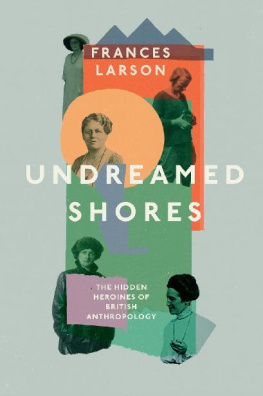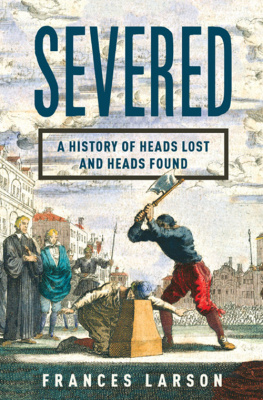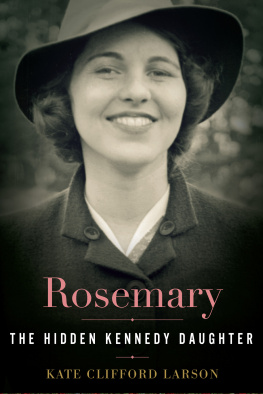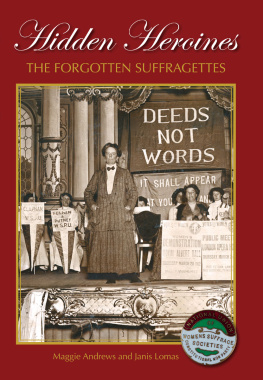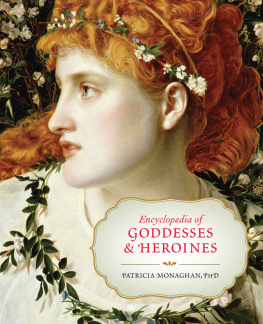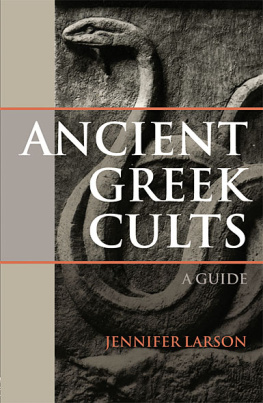Introduction
The past is my field site. I am an anthropologist who travels to places long ago rather than to places far away. Anthropology is predicated on travel, on embracing distance in an attempt to collapse it again. It is about reaching across boundaries and becoming strange. It is the study of translations, interludes, peripheries, and fragmented meanings. It is about confronting yourself through the unfamiliar presence of others.
As a graduate student, I had neither the inclination nor the courage to go abroad. One of my friends went to Zanzibar to study the souvenir market; another had already done research in Papua New Guinea by the time we met as doctoral students at Oxford. But our tutors did not necessarily expect us to travel: for our generation, anthropology was no longer limited to the study of distant shores. The whole notion of an isolated, exotic anthropological field site was in a healthy state of disarray by then anyway. One of my contemporaries decided to study local church bell-ringers; another explored the world of online video-gaming communities from the comfort of the college computer room; and I travelled into the past.
To reach my particular part of the late nineteenth century, I had to commute into London by bus each day and swipe my card at the door of the Wellcome Library archives. There I lost myself in the vast and chaotic private collections of Sir Henry Wellcome, the pharmaceuticals magnate and, more importantly to me, a fanatical collector of anything and everything.
It was in this archive, surrounded by stacks of documentation generated by Sir Henrys avarice, that I first met Winifred Blackman. Born in 1872, Winifred had gone up to Oxford to read anthropology eighty-six years before me, in 1912, and through dogged determination and persistent pestering, she had managed to squeeze a few hundred pounds out of Sir Henry in the 1920s to fund her research in Egypt. That was no small achievement, for a woman. Men, I soon learned, found it easier to win Sir Henrys support.
With the privileged perspective of a historian, I could see the casual prejudices Winifred faced more clearly, perhaps, than she could have seen them herself. Henry Wellcome funded many anthropologists over the years, both male and female. The women had to provide him with letters of reference, rsums and written research proposals, then they had to sign contractual agreements stipulating that they would deliver every single artefact they laid their hands on into Wellcomes collection. Sir Henrys staff told Winifred what she must buy for him, they carefully examined all her field collections, and after each season in Egypt she was made to wait for months to hear whether he would continue his financial support.
By contrast, her male contemporaries were simply given a cheque and sent off on their travels in eager anticipation of the treasures they would undoubtedly find. They enjoyed a far freer rein and did not have to concern themselves with any references, rsums or research plans. In short, the men were all men together; the women were useful up to a point.
Winifred Blackman played a cameo role in my doctoral dissertation and I thought little more about her, but during my next research project, writing a history of the collections at the Pitt Rivers Museum in Oxford, I met some of her contemporaries. Blackman, it turned out, was one of a handful of women who had come up to Oxford University to study anthropology on the eve of the First World War.
Oxford was unique in training a group of female anthropologists in the opening decades of the twentieth century. At Cambridge, there was only one comparable student: Winifred Hoernle, a South African who came up to read anthropology and psychology in 1908 and went on to become a lecturer in anthropology at the University of the Witwatersrand. The next female student who studied anthropology at Cambridge and established a career in the subject was Camilla Wedgwood. She arrived at Newnham College in 1920 and did fieldwork in Manam Island, off the north coast of New Guinea, in 1933. Meanwhile, no professional female anthropologists were trained exclusively at the University of London until the 1920s, although the London School of Economics then became home to the pre-eminent anthropology department in the country. Oxford was ahead of its time. Twenty-seven women (and 103 men) registered for the diploma in anthropology at Oxford between 1907 and 1918, and five of those women the subjects of this book became Britains first female anthropologists.
From the earliest year that a qualification in anthropology was offered at Oxford, the course attracted extraordinary women determined to travel to remote and inhospitable countries. The five whose stories I tell here led groundbreaking research in their fields. Katherine Routledge commissioned her own boat and sailed to Easter Island, one of the most isolated communities in the world. Maria Czaplicka risked her health to trek more than three thousand miles through a frozen Siberian winter in search of nomadic reindeer-herders who had never before seen a European woman. Winifred Blackman spent nineteen consecutive field seasons living with the agricultural peasants of Upper Egypt. Barbara Freire-Marreco went to work in the pueblos of New Mexico and Arizona. And Beatrice Blackwood, ignoring all advice, travelled into the New Guinea interior to live with warriors who still made their weapons from wood and stone.
Their travels were sensationalized in the press. Woman Lives for Year with Savages. Never Felt in Danger, Even on Fringe of Cannibal Land and Girl Risks Life at Forbidden Rites ran the headlines when Beatrice Blackwood returned from the Pacific in the 1930s. Blackwood disliked publicity, she felt it detracted from her research, but her peers sought media attention insofar as it could give a platform to their work and further their academic ambitions. Maria Czaplicka neatly pasted all the press clippings relating to her career in a large leather-bound scrapbook. It was more than a hundred pages long by the time of her death. Today, it is a crucial record of her work.
These five women were not simply adventurers; they were intellectual pioneers, members of the very first generation of professional anthropologists who set out to study human cultural diversity as part of a coherent, self-conscious academic community. Only a few dozen students male or female had studied anthropology at any British university when they embarked on fieldwork. The discipline was tiny and consisted of a handful of academics who all knew each other personally. In 1910, there were just three university posts in the subject: Cambridge University and the London School of Economics both had a lecturer in ethnology, and at Oxford there was a reader in anthropology. Those studying anthropology at the time were largely taught by academics from a range of related subjects, like psychology, linguistics, human anatomy and sociology. The parameters of the discipline had yet to be firmly established, and field methods varied. There was very little money for research. Jobs were scarce, and there were plenty of men to take them.
The women in this book would have wanted to be remembered for their professional achievements alone, but before they were adventurers and intellectual pioneers they were women, and as women they faced entrenched prejudice and constraint at every turn. At the end of the nineteenth century, middle-class girls and boys were born into different worlds. Winifred Blackmans brothers, for example, were privately educated, while she and her sisters stayed at home and did needlework to pay the bills. She never went to school, but she read voraciously and attended Oxford later, as a mature student.


